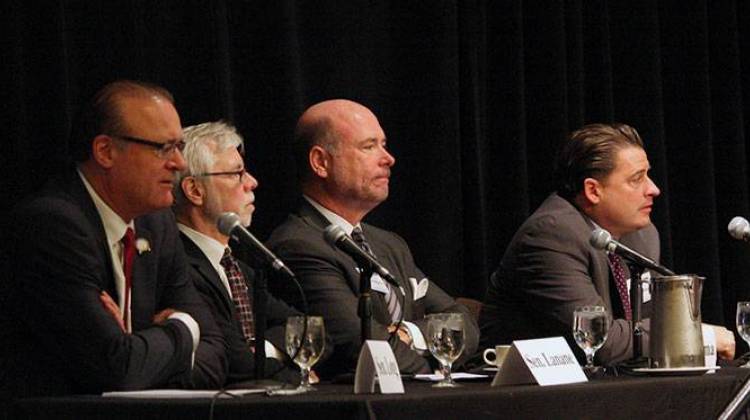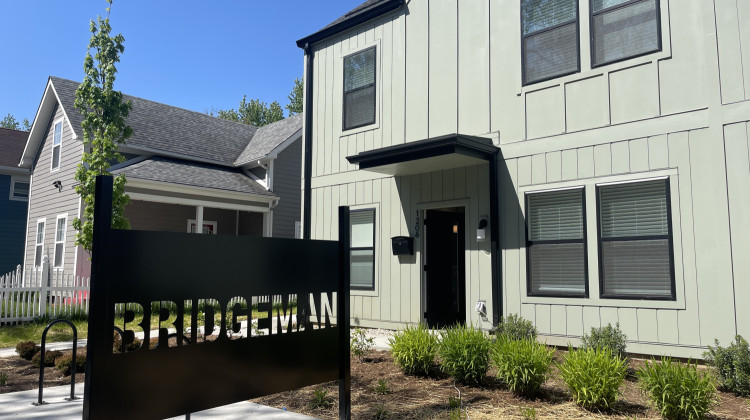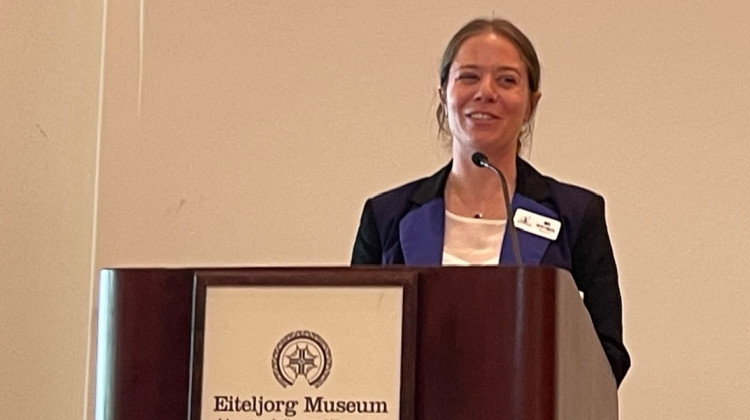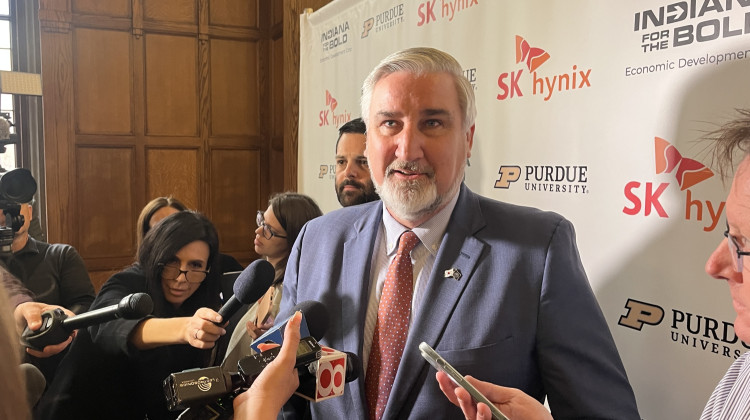The leader of the Indiana Senate said Tuesday that he’s bothered by the second sentence in a proposed constitutional marriage amendment that appears to ban civil unions in addition to same-sex marriage.
President Pro Tem David Long, R-Fort Wayne, said society’s views about domestic partnerships have been changing and “there’s becoming an acceptance of that around the country.”
But Long said it’s not worth changing the proposal to strip the language because that would re-start the amendment process, setting back possible ratification by voters to 2016.
A change would create “a lot of questions of whether it’s constitutional and that in itself would be a hindrance to a good open debate on the subject,” Long said.
The leader’s comments came on Organization Day, a brief and largely ceremonial meeting that precedes the 2014 session. Legislative work will begin in earnest on Jan. 6 and is expected to last through mid-March.
The proposed amendment – which defines marriage as the union of one man and one woman and bars arrangements similar to marriage – is the most controversial issue facing legislators in 2014. The General Assembly approved it in 2011 but it must pass again in 2014 to go on the ballot late next year for possible ratification by voters.
Earlier on Tuesday, Democratic leaders called on Republicans to set the amendment aside and focus on other issues. House Minority Leader Scott Pelath, D-Michigan City, said the marriage debate is “ugly and divisive” and detracts from more important issues.
“It has to stop and it has to stop today,” Pelath said.
He said House Speaker Brian Bosma, R-Indianapolis, should “announce that he is not even going to assign the resolution to a committee and take it off the table immediately so we can focus on the real issues facing Indiana.” Minority Leader Tim Lanane, D-Anderson, called for similar action in the Senate.
But Bosma said the proposed amendment will follow the normal legislative process and be first assigned to a committee for consideration. That way, he said, the decision about how to proceed will be made by the full House.
“We will do so with the recognition of the dignity of every Hoosier in here and elsewhere and also respecting each other’s strongly held positions,” Bosma said, shortly after calling the House to order.
And then using words from former President Abraham Lincoln on the 150th anniversary of the Gettysburg Address, Bosma added, “We need to discuss issue with malice toward none and charity toward all.”
Long said the Senate will wait for action by the House before taking up the issue.
“I fully expect to see it on the floor of the House and I expect it will probably pass the House and if it does then we’ll have a full discussion in the Senate,” Long said. “But I can’t predict its outcome.”
Legislative leaders acknowledged they’ve heard discussions about amending the proposal to take out the sentence that would ban civil unions. Bosma said there’s precedent that such a change wouldn’t prevent the first part of the amendment – the definition of marriage – from going on the ballot for ratification in 2014. But he said those precedents in the late 1960s and early 1907s were never challenged in court.
But the Legislative Services Agency, a nonpartisan group that writes bills and advises lawmakers, has said the move would put the amendment “on very shaky ground,” Long said.
“Why would we send something to the public we know could be challenged as unconstitutional because the language has been changed?” he said.
Long also said that he knows younger generations oppose that language and he pointed to his sons – 21- and 26-years-old – as examples of college students who “just feel differently than older people on this issue.”
“If I could write it over today, it probably wouldn’t have the second sentence in it,” Long said. “It was written that way to copy other states’ amendments.” But he said the discussion is “irrelevant right now.”
Republican and Democratic leaders said Tuesday that the marriage amendment is not the most important issue facing lawmakers. Bosma outlined a four-part agenda that he said Republicans will focus on in 2014: Early childhood education, workforce development and training, expanded road funding, and cutting or eliminating the personal property tax, which is levied on business equipment.
“It’s my hope we can work together as we did last session to find solutions that Republicans and Democrats can stand together on and say we’re moving Indiana in the right direction,” Bosma said.
Democratic leaders largely lauded the GOP goals – particularly the emphasis on early childhood education and workforce training and education. Democrats said the legislature should focus on raising the state’s per-person income, doing something about the meth scourge and expanding Medicaid to more low-income Hoosiers.
And Lanane said early childhood education – essentially state-funded preschool programs – will also top the Senate Democrats’ agenda.
“Studies have shown that kids who have the opportunity to have meaningful early childhood education not only do better in school as they go along, they’re less likely to need remediation,” Lanane said. “And they do better in life as well.”
The preschool program is just one of a number of education issues lawmakers are expected to face next year. Bosma said the General Assembly will tackle questions about the A-F grading system, standards for school curriculum and worker training questions.
But Bosma lamented that the marriage issue, rather than economic or education issues, will garner most of the public’s and media’s attention.
Still, Pelath said the marriage amendment is relevant to larger discussions about economic development. He said part of making Indiana a better place to do business is ensuring that young people in particularly want to stay or move to the state.
“Let’s set it aside and move on,” Pelath said. That will send a message that Indiana is a “common sense, tolerant and forward looking state.”
Lesley Weidenbener is executive editor of TheStatehouseFile.com, a news website powered by Franklin College journalism students.
 DONATE
DONATE







 Support WFYI. We can't do it without you.
Support WFYI. We can't do it without you.